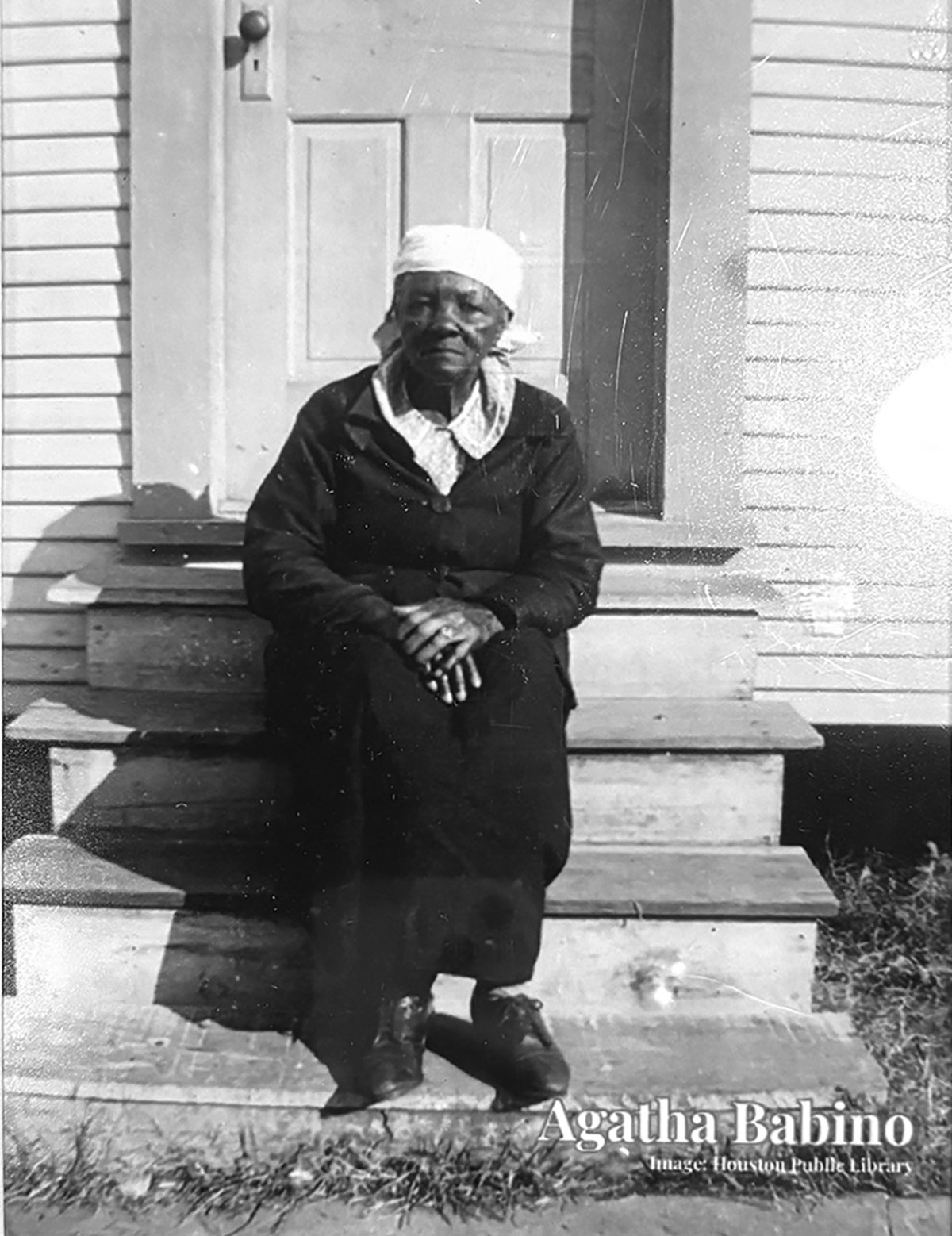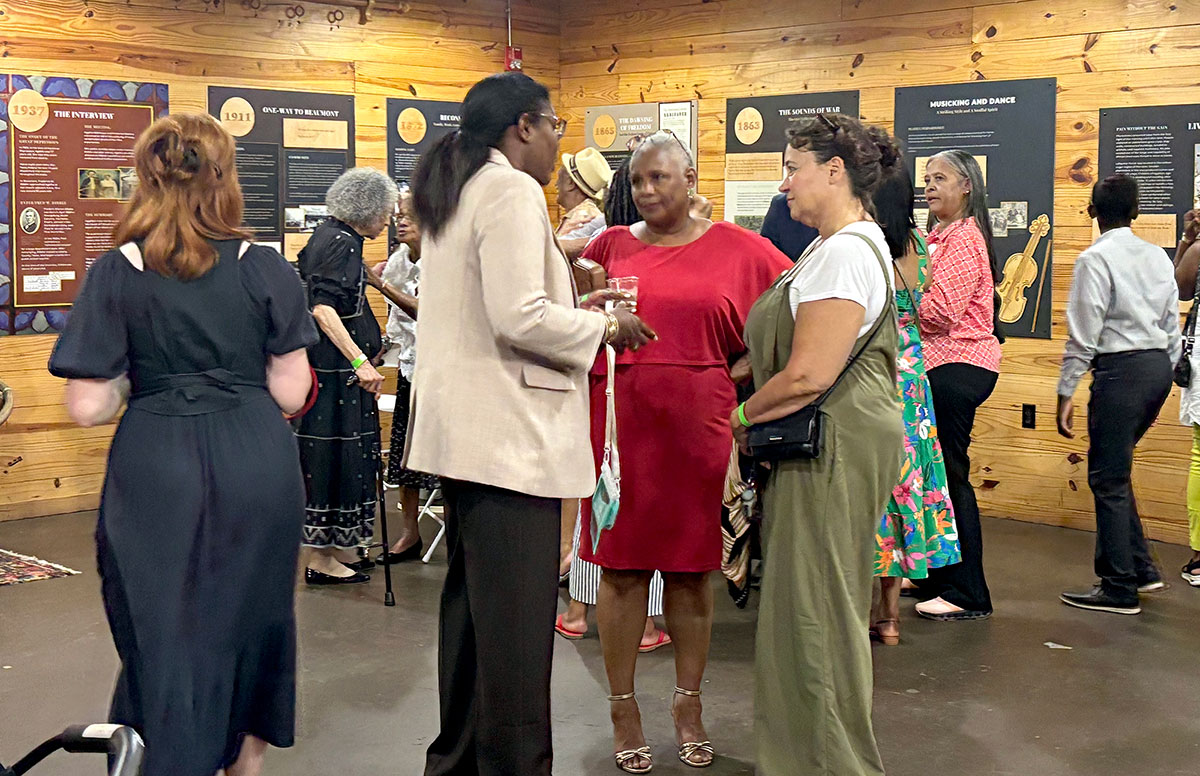French Museum highlights Agatha Babineaux in new exhibit

The Beaumont Heritage Society’s latest exhibition highlights former slave Agatha Babineaux and her journey to freedom in the exhibition “A Narrative of the Formerly Enslaved,” on display through Oct. 3 at the John Jay French Museum.
The exhibition is organized by Dionne Babineaux, founder of the Museum of Undertold Texas History whose husband is Agatha’s great-great grandson. Babineaux said the exhibit explores the complexity of life for the emancipation journey and recognizes places and historical events Agatha may have experienced.
“I wanted to be able to tell this story. as we see stories about what’s not there,” Babineaux said. “We read through these documents that are tough to read to find out these stories.”
The exhibition comprises multiple panels that tell the story of Agatha’s life which spanned almost a century. The information was compiled by Babineaux and also drew on an oral history interview with Agatha in 1937, part of the Texas Federal Writers Project.
Agatha was born into slavery in Carenco, Louisiana, in 1852 and was owned by her master, Augustin Guidry, for 12 years. She was the fifth child out of her eight siblings born to Clarisse Prince and Dick Richard.
One panel quotes Agatha saying, “My mama name was Clarice Richard” Agatha says in the display. “She come from South Carolina. Papa was Dick Richard, he come from North Carolina. He was slave of old Flacid Ouilbeau. My brothers was Joe, Nicholas, Oui, Albert, and Maurice. Sisters was Maud, Celestine, and Pauline.”
When Agatha was young, her family was split across different plantations. However, visitations were allowed if slaves received permission from their master.
“If we go to dance on ‘nother plantation, we have to have pass,” Agatha said 1937. “De patterrollers come and make us show de slip. If dey ain’t no slip, we git beat.”
When the Civil War began, while the Union army was committed to bringing about freedom, many slaves were unsure and scared of what was to come.
“I see plenty sojers,” Agatha said in 1937. “Dey fight at Pines ball go ‘zing-zing.’ Young marse have blue coat. He put it on and climb tree to see. De sojers come and think he a Yankee. Dey take his gun. Dey turn him loose when dey find out he ain’t no Yankee.”
However, by 1865, when slavery was abolished, Babineaux, who was 17 at the time, reunited with her family and began their life of freedom, or at least tried to.
During the early beginnings of freedom, there were still groups around trying to control and get rid of Black people, including the Ku Klux Klan.
“De Ku Klux kill,” Agatha is quoted as saying. “Dey come to take my uncle. He open de dor. Dey don’t take him, but tell him to vote Democrat next day or they will. Dey kill my old uncle Davis. Dey shoot him. Den dey stand him up and let him fall down. Dey dare his wife to cry.”
In 1872, Babineaux married Joseph Telesphore, who was the son of Edmond and Lucindy Babineaux, and they had eight children.
By the early 1900s, Babineaux’s children had moved to Jefferson County, and by 1911, Babineaux and her husband followed suit and moved to Beaumont. The couple were in their late 50s by this point.
The exhibition contains many historical facts and information that outs Agatha’s life in context.
“What I hope people get from this exhibit is that even though people were enslaved, that was not the limit of their lives,” Babineaux said.
The John Jay French Museum is located at 3025 French Rd. in Beaumont.
For more information, visit beaumontheritage.org/john-jay-french-museum.

Related Event
A lecture titled “Reading and Republishing of the WPA Slave Narratives of Texas,” hosted by Dionne Babineaux , will be held at 4:30 p.m., Sept. 11, in LU’s Reaud Event Space.
